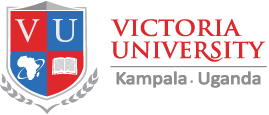Quick Facts
Credential
Master's Degree
Delivery Options:
Both On-Campus and Online - Some of your Classes will be in-person, on campus and some will be done online.
Duration: Full-time: 1.5 years | Part-time: 2-3 years
With a typical full-time course load, this programme will take Full-time: 1.5 years | Part-time: 2-3 years to complete.
Language of instruction
english
Admission Requirements
The programmeme is open to Ugandans and Non-Ugandans who fulfill the admission requirements. The requirements described below are only the minimum academic conditions for admission and only make you eligible for consideration. You are considered to be eligible for admission if you possesses any of the following:
A degree in any biological sciences from a recognized institution, for example, Human medicine (MBChB) or nursing Public Health, Pharmacy, Environmental Health, Human Nutrition and Dietetics, Food Science and Technology, Veterinary, Public Health, Food Science and Technology, and Statics and Social Sciences. Also, A degree in social sciences or its equivalent from a recognized university, with a background of health sciences, Social Works and Administration, Sociology, Economics, Demography and Development study.
An equivalent qualification from other institutions outside Uganda as may be determined by the Uganda National Council of Higher Education from time to time.
Applicants whose first language is not English will be required to demonstrate a proficiency in the English language by passing an English proficiency Test conducted by the University.
Admission Requirements Postgraduate Students (Ugandans)
· Bachelor’s Degree transcript
· Diploma transcript if applicable
· Certificate if applicable
· UACE result slip
· UCE result slip
· National ID/passport/ birth certificate
· Two Passport Photos
· Admission fee receipt UGX 250,000
Admission Requirements Postgraduate students (Non-Ugandans)
· Bachelor’s transcript
· Diploma transcript if applicable from NCHE
· Certificate if applicable from NCHE
· Secondary certificate from UNEB
· National ID/passport/ birth certificate
· Two passport photos
· Admission fees Receipt $78
What you will Learn
Following successful completion of the MHSM programmeme, you are expected to have:
Health Service Management Knowledge: You will be able to analyze, synthesize and apply selected theories to identify health service delivery problems, conceptualize a research strategy and analyze the problem identified.
Health Policy development and implementation: You will be able to critically analyze, synthesis the process of policy development, its implementation framework and applicability in the health care practice.
Health Services Research applicability: You will be able to use skills acquired to utilize evidence from health services research to design and propose interventions at the project, programme and organizational level.
Human Resource Management for Health services: You will be able to examine how Human Resources policies and practices operate within the health system at macro (societal and international) and micro (organizational) levels.
Project management at the health: You will be able to apply the knowledge of leadership and management, including knowledge of internal and external organizational influences on practice in order to provide continuity of healthcare delivery.
Professionalism: You will be able to attain commitment to accountability to self, Life-Long Learning (LLL) practices, continuing competency, the welfare of health care consumers, and professional standards, and will able to demonstrate an appreciation for ethical, legal, and professional accountability for generalist practice.
Career Opportunities
CAREER OPPORTUNITIES
Upon completion of the Master of Science in Health Services Management programmeme, graduates will be equipped with a range of competencies and skills that will prepare them for various career opportunities in the field of health services management. Some of the possible career paths for graduates include:
Health Services Manager/Administrator: Graduates can work as managers or administrators in public health institutions, hospitals, and other health service organizations. They will be responsible for managing the daily operations of these institutions, supervising staff, ensuring quality of care, and implementing policies and procedures.
Health Policy Analyst: Graduates can work as analysts, consultants or advisors to government agencies, non-governmental organizations, and health care organizations. They will be responsible for analyzing health policy, identifying gaps, and developing policies that address health care needs.
Health Informatics Specialist: Graduates can work as health informatics specialists in various health care organizations. They will be responsible for designing, implementing, and managing health information systems that improve the quality and efficiency of health care delivery.
Health Researcher/Evaluator: Graduates can work as health researchers or evaluators for health care organizations or research institutions. They will be responsible for designing and conducting health research studies, analyzing data, and evaluating the effectiveness of health care programmemes and policies.
Health Care Consultant: Graduates can work as independent consultants, providing expertise in health care management, policy development, and quality improvement to health care organizations.
These are just a few examples of the many career opportunities available to graduates of the Master of Science in Health Services Management programmeme. With their strong theoretical and practical knowledge in health services management, graduates will be well-equipped to make a positive impact in the health care sector.
Tuition & Fees
The tuition and fee amounts are estimates based on current academic year's rates. For financial planning purposes, please use these totals as an approximate estimate of your costs. Actual fees may vary by term and enrolment activities.
Download
